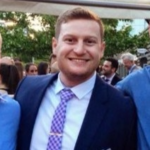
Employability of MBA Graduates in a Post Pandemic World
By Ty Taylor
April 30, 2021
Studies have shown that graduate school applications rise in periods of an economic downturn, and that trend has continued with the Covid pandemic. More specifically, business school in the United States saw double-digit percentage application increases in the fall of 2020, and the top M.B.A. programs managed to reverse “several years of declining demand, according to the nonprofit Graduate Management Admission Council, which tracks hundreds of M.B.A. programs.”
In addition to this, “five of the seven M7 schools had record years for applications, bringing the group’s total to just under 48,000, a 14.5% jump from the previous year (2018-2019) and 3.3% higher than 2016-2017.”

Graduate Management Admission Council
It is not just top graduate programs as “among full-time M.B.A programs specifically, 69 percent reported increased volumes, including 35 percent of programs that reported applications were ‘up significantly’ (21% or more vs. 2019).” There are several reasons these numbers increase during times of economic stress, but the reality of this influx from a student’s perspective is that the competition when vying for the same jobs as your M.B.A peers can be daunting.
Being able to craft your edge as a graduate and make yourself more employable than your peers is of the utmost importance, as we all want to reap the rewards of our hard work. The BE-EDGE framework is an influential tool that can help any individual differentiate themselves from other candidates and is a skillset that I wish was viewed as a critical investment for students throughout the graduate school experience.
My Experience:
I am at an inflection point in both my part-time M.B.A program, and my career, as I need to create a personal strategy that will help me decide what investments courses I want to focus on, and what experiences and knowledge I want to add to my skillset. What is even more crucial is how I plan to use these skills to differentiate myself and secure my professional space in the investment industry, which is a highly competitive marketplace.
The number of options and outcomes on a five- or ten-year horizon seem endless, and I know the decisions I make now play a major role in how I shape my professional career. It is not about feeling stuck and panicked about the future – it is about crafting a personal strategy that allows me to own my next step, and then create the path I want to take.
I need to pursue taking ownership of my Boutique Employability (BE) by building a core of capabilities that gives me an edge in a competitive market. The BE framework provides focus and direction that allows me to deploy tools that can guide me through my journey and lets me to take a step back to take stock of what makes me employable now, so that I can use it as a foundation to craft an EDGE that differentiates me in today’s job market and beyond. I need to focus on the scope of my current role and decide how I can best add to my multidimensional core.
Step 1: (E)lucidating My Core
I am driven by people and being a dedicated sales professional in the investment industry. I have spent my career crafting my space by broadening my investment knowledge with a focus on the foreign exchange markets and how they can be used to capture absolute return and downside protection for institutional investors.
Step 2: (D)eveloping Trust Within the Industry by Telling a Compelling Company Story
Collaborating with institutional investors to gain their trust by structuring investment solutions to solve their investment challenges and helping them hit their actuarial rate assumptions in changing market environments.
Step 3: (G)enerating Value and Capitalizing on my Core
Collaborating with consultants, utilizing my existing knowledge of institutional investors, and leveraging existing relationships with finance leaders and public plan officials to provide them with alternative investment solutions, while also raising assets and creating value for my firm.
Step 4: (E)xciting the Market with My Edge
Combining the soft skills I have honed in on as an investment sales professional with the hard skills I am developing and strengthening in the M.B.A program expands my multidimensional core, and provides a solid foundation for competing with my peers in the industry post-graduation. I can take charge of my future because I am focused on my personal strategy as well as the social and professional capital I am creating.
Being considered a thought leader in the investment industry by pushing boundaries and people to engage in critical analysis and divergent thinking will allow me to use my edge to energize the investment industry. The BE-EDGE framework has already put me in the mindset to constantly evolve my core and differentiate myself and is something I want to build on because these tools will be vital in a post-pandemic world that will have numerous newly minted M.B.A graduates from highly competitive schools. The challenge is balancing the synchronization of your multidimensional talents with your long-term goals at this time so that you can seize on opportunities when they arise.
BE-EDGE is for everyone from crafters, like you and me, to educators and employers, and it can provide the perfect combination of personal and organizational competitive advantage strategies.
About the Author

Ty Taylor is a native South African that graduated from Northeastern University as an undergraduate, where he majored in Economics with minors in Business Administration and Psychology.
He is currently a part-time dual MSF/M.B.A candidate at the D’Amore-McKim School of Business at Northeastern University and works full time at an investment management firm in Boston, MA.

